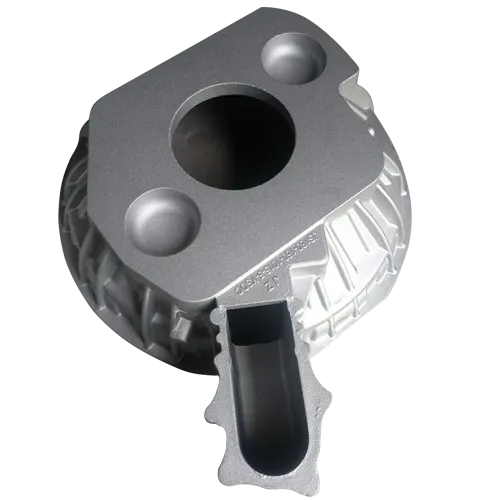Mobile:+86-311-808-126-83
Email:info@ydcastings.com
technopolymer impeller
The Role of Technopolymer Impellers in Modern Engineering
In the realm of modern engineering and manufacturing, the choice of materials can profoundly influence the performance and efficiency of equipment. One such material that has garnered attention in recent years is technopolymer, particularly in the context of impellers—components crucial for fluid movement in various systems, including pumps, compressors, and turbines. This article delves into the significance of technopolymer impellers, exploring their advantages, applications, and trends shaping their future in engineering.
Understanding Technopolymer
Technopolymers are advanced polymers that possess enhanced mechanical properties, chemical resistance, and thermal stability compared to standard plastics. Made from engineering-grade thermoplastics, these materials offer a unique combination of lightweight characteristics and strength, making them ideal for demanding applications. Common types of technopolymers include polyether ether ketone (PEEK), polyamide (PA), and polyphenylene sulfide (PPS). Their exceptional durability and resistance to environmental factors enable technopolymers to take on roles traditionally filled by metals, particularly in scenarios where weight reduction is paramount.
Advantages of Technopolymer Impellers
1. Lightweight The primary advantage of technopolymer impellers lies in their reduced weight. Compared to traditional metal impellers, technopolymer variants can significantly decrease the overall weight of a system, leading to energy savings, improved handling, and lower material costs in transport and installation.
2. Corrosion Resistance Technopolymers boast remarkable resistance to a wide range of chemicals and corrosive environments. This property is particularly valuable in industries like wastewater treatment, chemical processing, and marine applications, where exposure to harsh substances is common.
3. Cost-Effectiveness While the initial material cost may be higher, technopolymer impellers can lead to lower overall lifecycle costs. Their durability minimizes maintenance and replacement frequency, while their lightweight nature can reduce energy consumption during operation.
4. Efficient Manufacturing Technopolymer impellers can be produced using advanced manufacturing techniques such as injection molding and 3D printing. These processes not only allow for complex geometries that enhance fluid dynamics but also enable rapid prototyping and production scalability.
technopolymer impeller

5. Noise and Vibration Dampening The inherent properties of technopolymer materials help in dampening vibration and reducing noise during operation. This can lead to a more pleasant working environment and enhance equipment life by minimizing mechanical stresses.
Applications of Technopolymer Impellers
Due to their unique properties, technopolymer impellers find applications across various sectors
- Industrial Pumps In the pumping industry, technopolymer impellers are increasingly used to handle aggressive fluids, including acids and solvents, without compromising efficiency or reliability. - HVAC Systems Air handling units and HVAC systems benefit from technopolymer impellers due to their reduced weight, which simplifies installation and enhances energy efficiency. - Marine and Offshore Equipment The corrosion resistance of technopolymer imellers makes them ideal for marine environments, where they can offer longevity and reliability against salty, harsh conditions.
- Food Processing Compliance with stringent hygiene and safety regulations makes technopolymer impellers suitable for food processing machinery, where they prevent contamination without sacrificing performance.
Future Trends
As industries continue to innovate, the demand for technopolymer impellers is poised to grow. Advances in material science are likely to lead to the development of even more high-performing technopolymers, enhancing their applicability in extreme conditions. Additionally, the push for sustainability and lightweight solutions in fields such as aerospace and automotive engineering will drive further research and adoption of these materials.
In conclusion, technopolymer impellers represent a significant advancement in engineering materials, marrying the concepts of performance and efficiency. Their lightweight, durable, and corrosion-resistant qualities make them a preferred choice across a range of industries. As technology continues to evolve, we can expect technopolymer impellers to play an increasingly vital role in the design and functionality of fluid handling systems, ultimately enhancing productivity and efficiency in modern engineering applications.
-
Why Should You Invest in Superior Pump Castings for Your Equipment?NewsJun.09,2025
-
Unlock Performance Potential with Stainless Impellers and Aluminum End CapsNewsJun.09,2025
-
Revolutionize Your Machinery with Superior Cast Iron and Aluminum ComponentsNewsJun.09,2025
-
Revolutionize Fluid Dynamics with Premium Pump ComponentsNewsJun.09,2025
-
Optimizing Industrial Systems with Essential Valve ComponentsNewsJun.09,2025
-
Elevate Grid Efficiency with High-Precision Power CastingsNewsJun.09,2025











